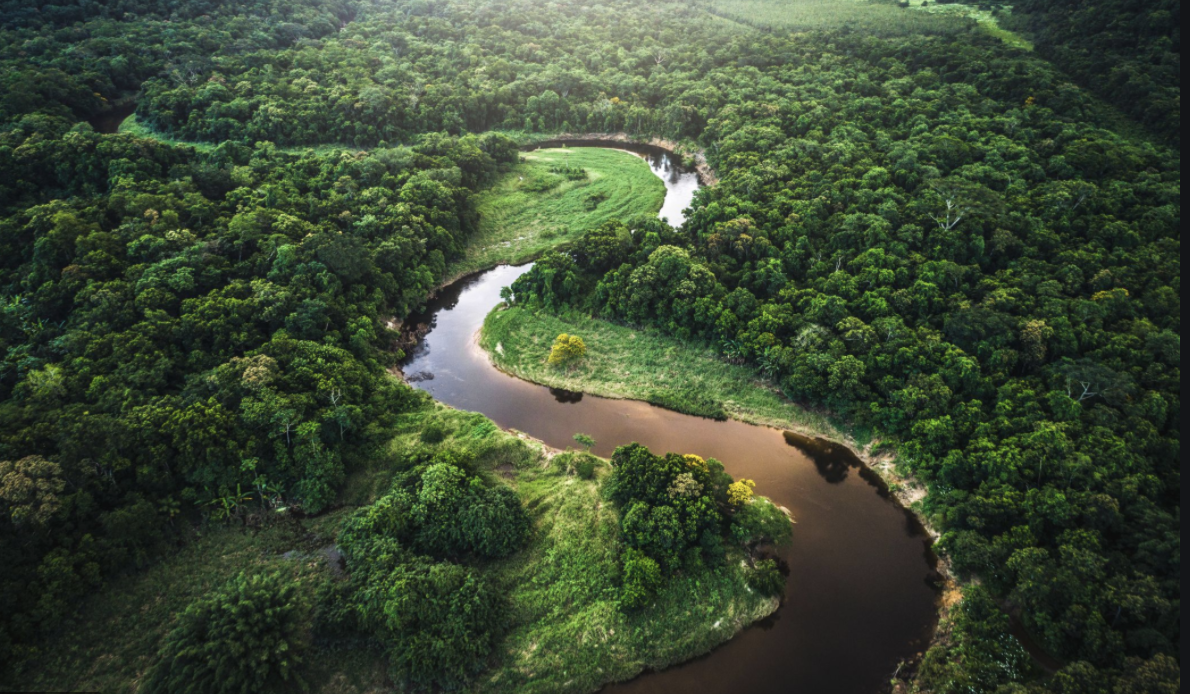As the coronavirus continues to ravage the world, it is leaving a tragic path of death, mourning and economic destruction in its wake. Particularly in the Amazon basin ––not capturing nearly enough media attention–– where under-reported casualties and opportunistic pillaging is causing irreversible damage to the earth’s lungs.
The Amazon Rainforest, which provides 6% of the world’s oxygen, is constantly targeted illegally by miners, loggers and farmers for its abundant resources. However, the stewards of the rainforest, the indigenous tribes that put their lives at risk to protect their homes, have fiercely fought against these unjust invasions with limited help from the Brazilian government.
Today, they are fighting for their lives against a highly contagious virus, introduced to them by the same people they are trying to keep out of their homes.
Karen Lassner is a health expert in Rio de Janeiro on the board of the BrazilFoundation that provides grants to non-profit organizations in Brazil. On World Environment Day, BrazilFoundation launched its Amazon Fund in partnership with Conservation International to raise money to support Brazilian organizations working in the Amazon to respond to the Covid-19 pandemic by providing humanitarian relief to indigenous people. This includes the Riverine, traditional people who live along the rivers, and “Quilombola,” descendants of slaves who resisted slavery and established their own communities.
In an interview last week, Lassner explained that “There are approximately 800,000 indigenous people in Brazil distributed among 5,852 villages….who are the primary defenders of the Amazon rainforest. If they are not healthy, they are unable to defend their lands”.
These courageous people endured centuries of oppression as they defended their lands, cultural heritage, language and values, as well as the prosperity of the rainforest, only to lose control of their fates and the environment they tirelessly preserve.
The highly infectious nature of Covid-19 has caused the loss of many portions of indigenous territories, such as the Yanomami Tribe, and the pollution of an increasing number of rivers by careless gold miners. In addition, deforestation has grown by over 60 percent in the past year. Already, around 20 percent of the Amazon rainforest has been destroyed, and if that number reaches 25 percent, there is a large probability that the forest will dry out and become a savannah.
Further complications encountered by the indigenous tribes include access to health care, education, unsanitary conditions and lack of communication and transportation infrastructure. One example being that in the process of receiving medical attention, the Kokoma people have contracted the coronavirus from a service doctor who had come into close contact with others before treating them.
Karen stressed an important point during our interview, explaining that a “big hurdle is distance and remoteness… It takes many, many days to go from one place to another… and the lack of internet, TV communications and unreliable radio, deter the flow of information about how to slow or avoid the spread of the virus.”
She also explained that many indigenous peoples must travel to urban centers to buy PPE such as masks, which also exposes them to the virus. Living conditions also pose a large hurdle as more than 90% of indigenous homes have no clean water, and multiple people often live in one room, exponentially increasing the risk and speed of the disease spreading.
The Brazilian government does not seem to acknowledge the pivotal role that indigenous people play in the health of all humanity, and they have not done enough to counter the disastrous effects of this pandemic.
Karen explained that the Brazilian government is very sensitive to criticism about how it protects and cares for indigenous populations, and therefore does not communicate accurate statistics about the number of cases and deaths due to the virus. For example, she informed me that “Indigenous people who die of Covid-19 in a hospital outside of their villages, or while being transported, are not included in government statistics on Covid-19.”
This discrepancy is noticeable when compared to data provided by non-profit indigenous organizations. Karen stated that there was a divergence of 555 cases reported between two days, in the statistics reported by the National Committee on Indigenous Life and the government, which is a significant difference given the size of the population. In addition, there were 176 more deaths reported by the National Committee compared to government numbers issued only one day apart.
What may be one of the most devastating and long-term effects of this time period is the loss of what Scott Wallace from National Geographic magazine calls, “Living encyclopedias.” Who will be left to preserve the unique languages, customs, skills and memories of these communities? The Indigenous population, especially the elderly who are most vulnerable to the disease, possess centuries of knowledge and a rich culture that is currently threatened. As a world, we must come together to protect and save these precious populations and their lands before they are lost forever.
If you would like to contribute to the AmazonForever Fund, and provide much-needed emergency support to the people of the Amazon, you can donate at https://fundos.brazilfoundation.org/amazonia/en.






